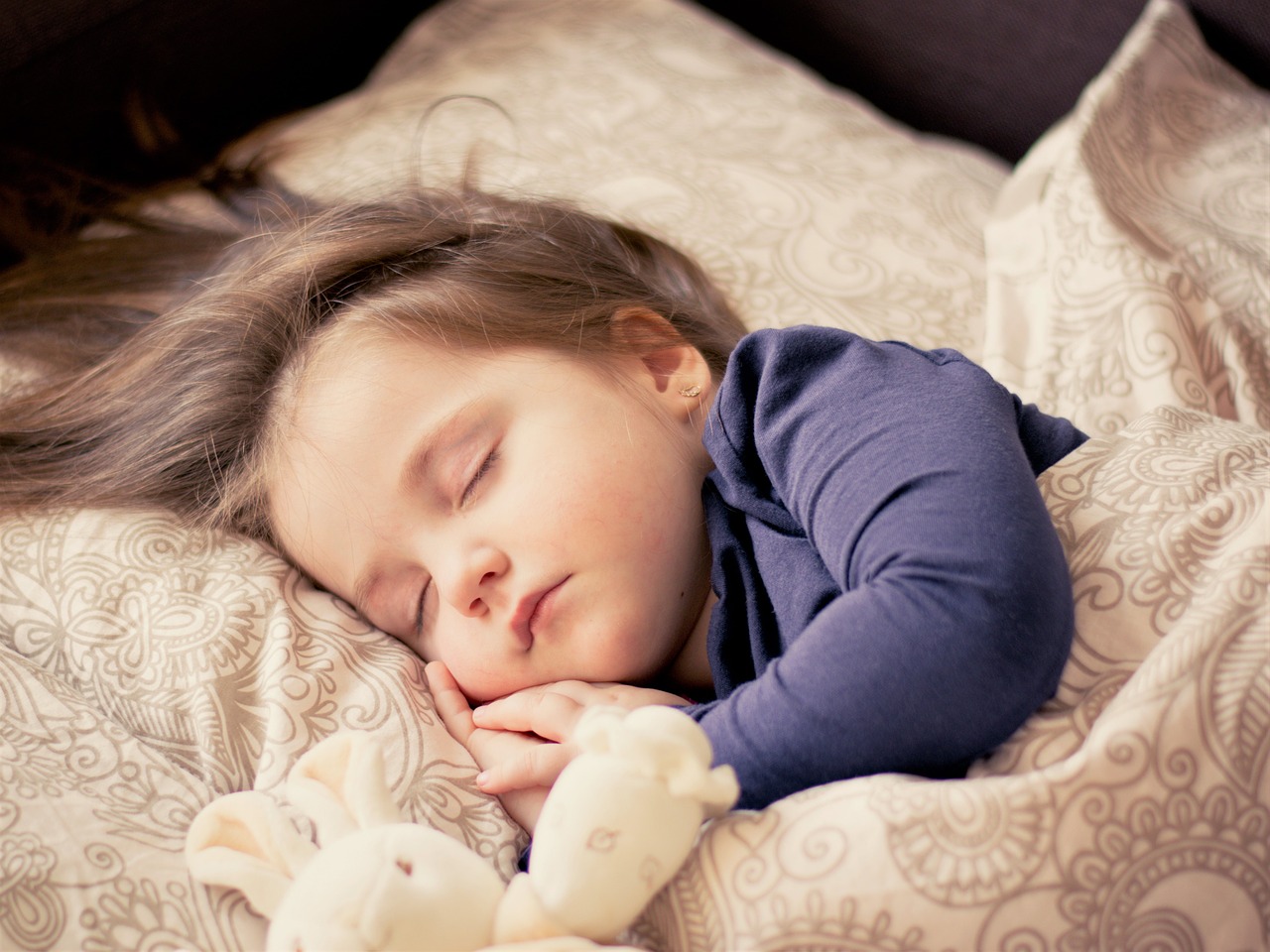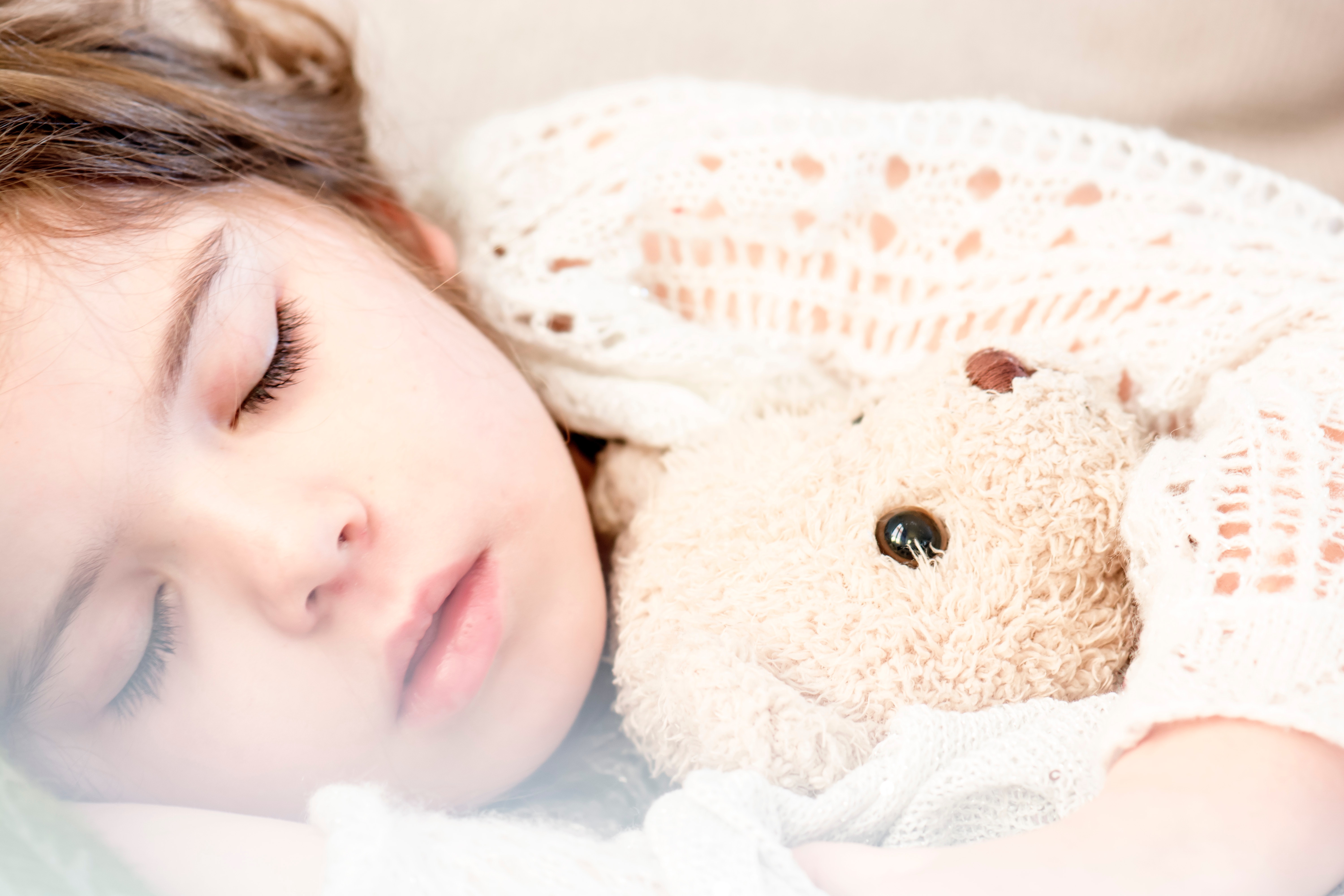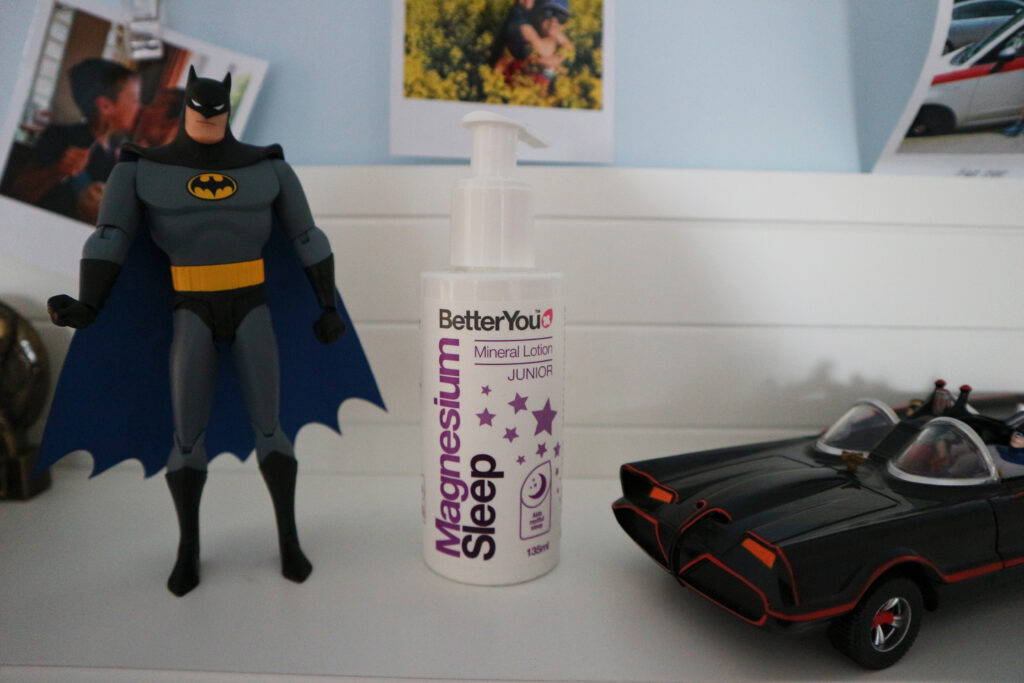Unless you were blessed with a child who just magically drifts off to sleep each night, you have likely asked the question, “How do I get my child to sleep at night?”
Most parents do.
In fact, sleep is one of the most common concerns parents have for their children, and it can be a tricky issue to sort out. If you’re one of the many parents struggling to get more sleep – for you and your child – this quick guide will help your family tremendously.

How Much Sleep Should Your Child Be Getting?
One place that parents often make their first misstep when it comes to getting sleep is having unrealistic expectations for sleep in the first place. The amount of rest your child needs throughout the night (and day if you’re still in the napping stage) is based on your child’s age.
Infants require much more sleep than toddlers or school-aged children because their bodies are still developing so quickly. These are some generalized guidelines regarding the amount of sleep a child needs at every age:
- Newborn to 3 months – approximately 14-17 hours, including naps
- 4 months to 1 year – approximately 12-15 hours, including naps
- 1 to 2 years – approximately 11-14 hours, including naps
- 3 to 5 years – approximately 10-13 hours, with/without naps
- 6 to 13 years – approximately 9-11 hours
- 14 to 17 years – approximately 8-10 hours
Your child’s sleep needs will vary depending on his or her activity level as well as his or her natural disposition.
For example, a more energetic child may naturally require less sleep regardless of age. Likewise, most children tend to take 3 naps a day in their first months and begin to start dropping naps around 1 year.
How to Get Your Child to Sleep
Once you’ve established how much sleep your child needs, you may need a little help figuring out how to accommodate their sleep requirements. Don’t get discouraged if your child is not getting the recommended amount of sleep. Use these tips to help your child sleep better and be consistent.
Over time, your child’s sleep habits should improve, and everyone will be able to get better rest.

1. Set a standard bedtime and wake time
One thing that may be affecting your child’s natural circadian rhythm is an erratic or inconsistent sleep and wake time.
Help him/her create a predictable pattern, and they’ll likely sleep better because of it. Put your child to bed at the same time, within an hour, each night and wake him/her at the same time, within an hour, each morning.
2. Create a bedtime routine
In addition to having a standard sleep and wake time, a nightly routine will signal to your child that it’s time to prepare for sleep. Children also find routine comforting and relaxing.
Set the stage for bedtime by giving your child a bath, having a story time routine, or establishing some other nighttime routine that works for your family. As the habit develops, their body will start to wind down naturally when it’s bedtime.
3. Induce sleep with essential oils
As they learn natural coping mechanisms to relax and prepare for sleep, some children need help getting ready to sleep. Using essential oils (aromatherapy) can help to induce sleep because many of them have natural sedative, or calming properties.
For inducing sleep and calm, lavender is perhaps the most well known and widely studied aroma, however, arborvitae oil is known to have similar effects. Combining the two will make a perfect blend to diffuse at nights when sleep is hard to come by.
4. Reduce stimuli
Too much stimulation too close to bed can also have a negative effect on sleep.
Ideally, turn off the television, computer, and any other games or devices 2 hours prior to bedtime to reduce the stimulation your child receives before bed.
5. Consider diet and exercise
While it’s not very likely that your child is drinking too much coffee during the day, he may be getting too much caffeine from other sources throughout the day. Likewise, if he’s not getting enough exercise to burn off his energy throughout the day, he may not be sleeping as well as he could.
As you make adjustments to his actual sleep and wake time, bedtime routine, and sleep environment, also be sure to consider diet and exercise.
Reduce foods and drinks with an excess of caffeine and sugar, and make sure that playtime involves activities that are active and resemble exercise.
*This post was written by Trysh Sutton from Pure Path a health & wellness company that promotes healthy living and healing.
If you enjoyed this post you may also like:
A Calmer Bedtime with Better You

Using Aromatherapy to get a better nights sleep with Aubrey Bay

